What Does It Take To Be a Block Builder
Published: tismChronicles of a penguin 🐧 buildin in Ethereum’s harshest environment.
Introducing penguinbuild.org, a new neutral block builder to compete in Ethereum block auctions.
With all the discussion of how block building on Ethereum is becoming a more and more centralizing force, we at Cryptic Woods took it upon ourselves to see if it was possible for a new entity to join the game.
We have found that it is definitely possible, but the entrance fee is quite high; so far, it has cost us ~19 ETH (and counting), but this cost is decreasing over time, and hopefully we may even be profitable soon™.
Penguinbuild aims to become the largest neutral block builder on Ethereum.
Prelude
Inside Ethereum’s complex dynamics, one of the least documented journeys is the one of becoming a block builder under the opt-in proposer builder separation (PBS) design.
For those who are not aware of what PBS does, it is essentially outsourcing the task of building blocks from the validator. The rationale being that, with open competition, outsourcing that task would allow the market to create more profitable blocks.
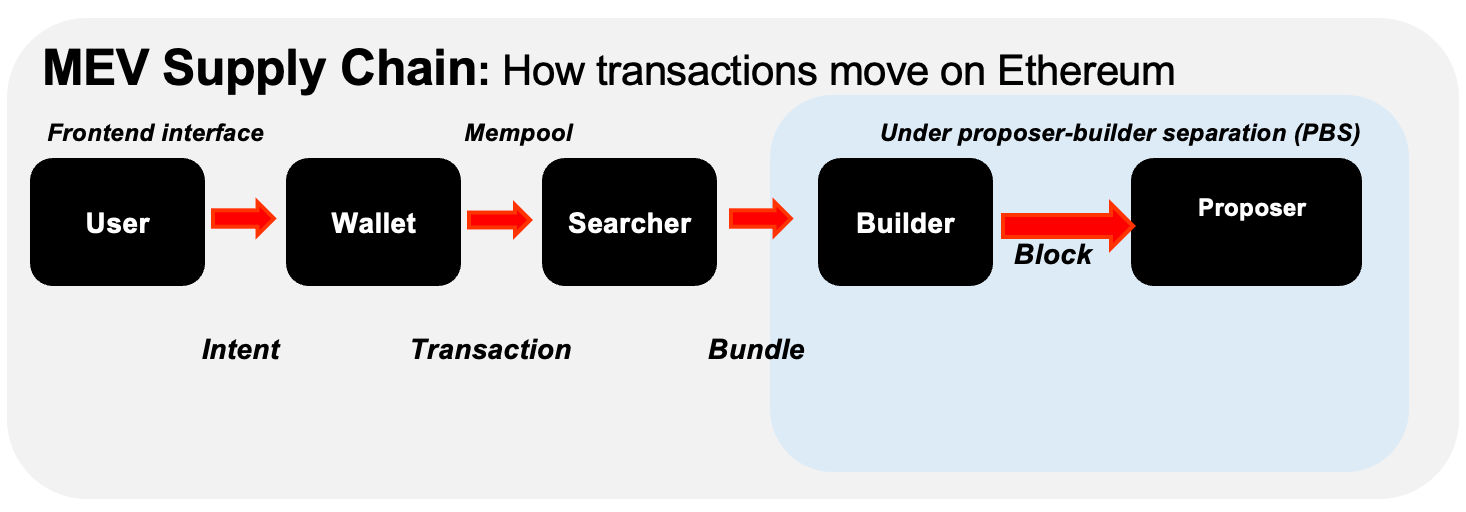
In this article, we will be documenting our findings, and mistakes made along the way. Buckle up!
The Price of Entry
Unlike searching, there’s a high cost of entry for block building beyond pure technical skills. To our dismay, we found that you cannot just whip up flashbot’s builder and expect to build blocks immediately. Only the block with the most economic value will be selected for each slot, and simply using the mempool wasn’t going to cut it.
So how can you win without private orderflow? You subsidize it. As you are missing orderflow, you have to make up for this out of your own pocket.
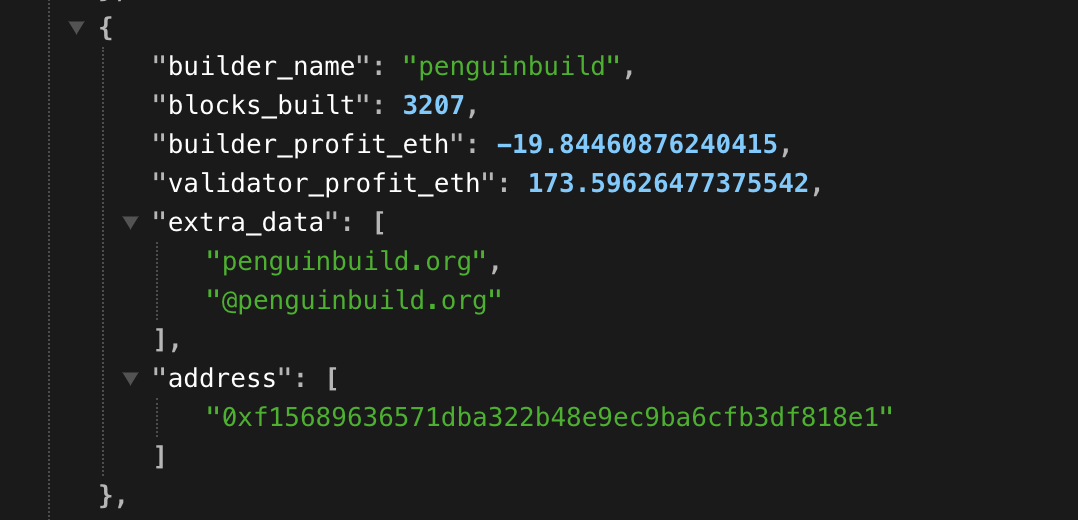
Since we started, our block builder has cost us around 19 ETH (~42k USD at the time of this article) and counting. So yes, anyone can participate in block building, but only if you have deep enough pockets.
So why are we subsidizing blocks? For reputation? In a ‘trustless’ world?
Navigating Trust in a ‘Trustless’ World
One of the most enlightening aspects of our journey was grappling with the concept of trust in what is often touted as a trustless environment. The reason we spent 19 ETH (and counting) is to signal to the community that we’re a serious player that is here for the long term and gain their trust.
A little refresher - for your block to be selected, it needs to be the most economical block. And how do you increase the economic value of a block?
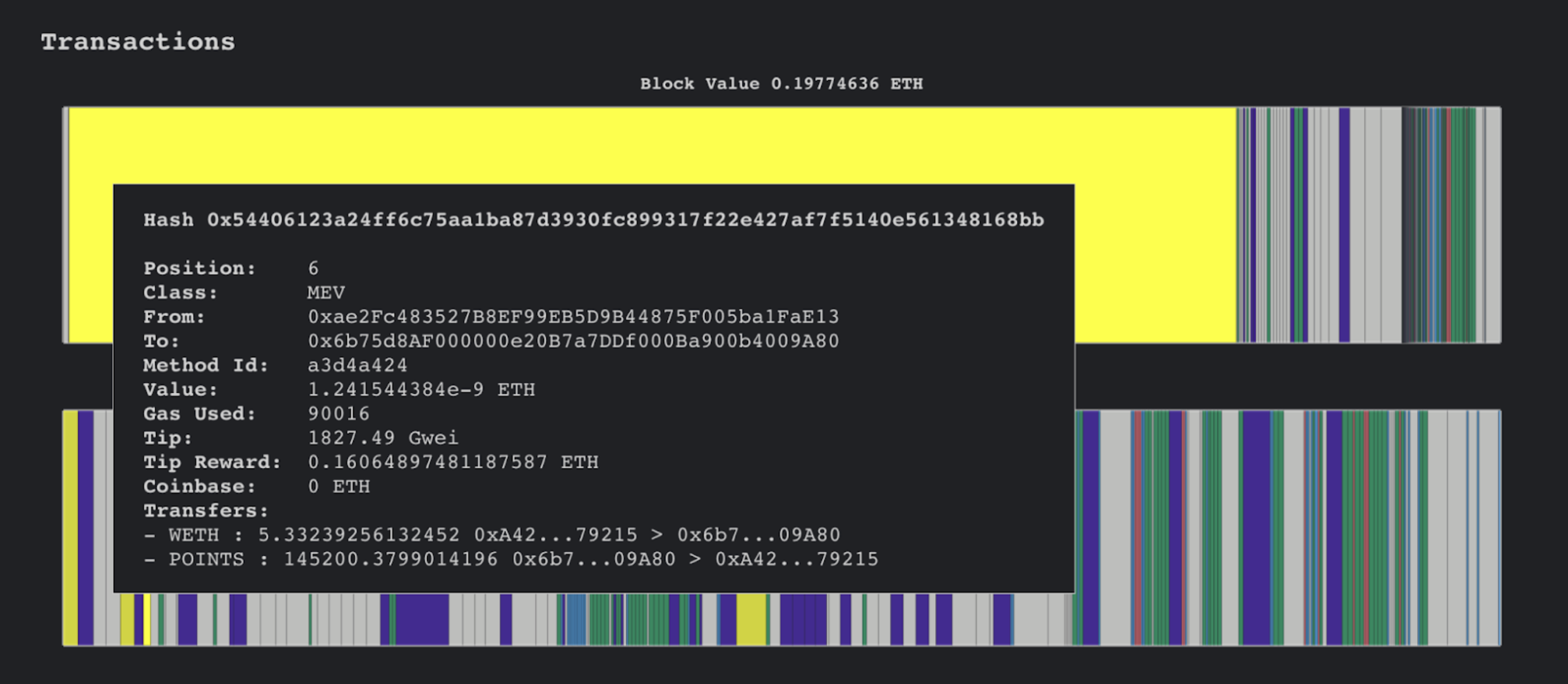
The answer is by having MEV transactions and token snipes from bots such as Maestro / Banana Gun / Shuriken. Those transactions contribute greatly to the value of any given block. In the image above, the MEV transaction from contract 0x6b75…9a80 generated an economic value of 0.16 ETH, while the whole block is worth 0.1977 ETH, making it ~84% of the total block value.
So how do you get private orderflow from MEV searchers and token sniping bots like so? Trust, and reputation. Especially since the low-carb-crusader incident, a lot of higher profile MEV searchers / token snipers will only selectively send their private orderflow to builders that they trust.
Building More Than Blocks
The Power of Relationships and Trust
As newcomers, we had to quickly establish trust and build relationships within the community. This required more than just financial investment; it also necessitated technical competence.
There have been some incidents where some builders have been known to unintentionally unbundle transactions from private searchers. Once that happens, it is very hard for the builder to rebuild the trust with the searchers.
Cultivating Trust in the Community
To differentiate ourselves as a trustworthy block builder, we have implemented a comprehensive dev/prod environment to prevent technical accidents like this from ever happening.
Dev Server: The Testing Ground
We have a dev server that acts as our experimental testing ground. Nothing from this server is sent out to the relays. The goal of the dev server is to do a dry run of block building against mainnet. Once that is done, we have a post-processing pipeline to analyze the blocks against the mempool at the time and bundles received to ensure no unbundling / unintended behavior occurs.
Transition from Dev to Prod
Once we are confident in the stability of the dev server, only then do we transition them into the prod server, which is optimized for real-time performance and speed.
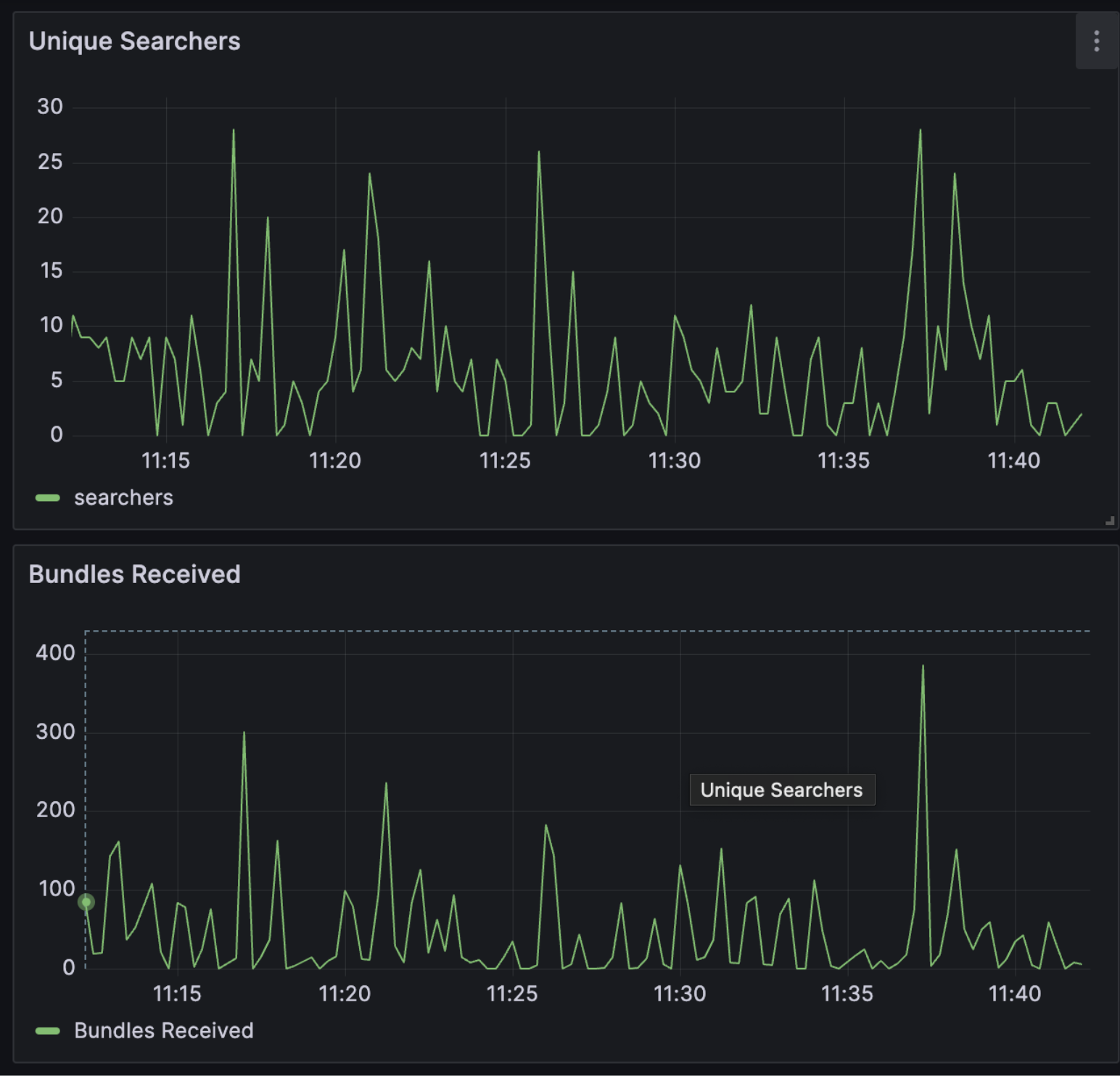
This trust can be seen in the amount of unique searchers that have sent us bundles in the last 2 weeks, despite being a newcomer.
Bloxroute BDN: Game Changer
Something we did not expect was how much of a game changer Bloxroute’s Blockchain Distribution Network (BDN) was for block building.
Using Bloxroute’s BDN, we were receiving transactions about 300ms faster on average, which allowed us to build blocks with more economic activity. While this slight increase in speed might not sound like much, you need to understand that the blocks built vs searcher count has an exponential relationship.
This means with each additional transaction you see quicker, the odds of you building the block with the most economic activity increases exponentially.
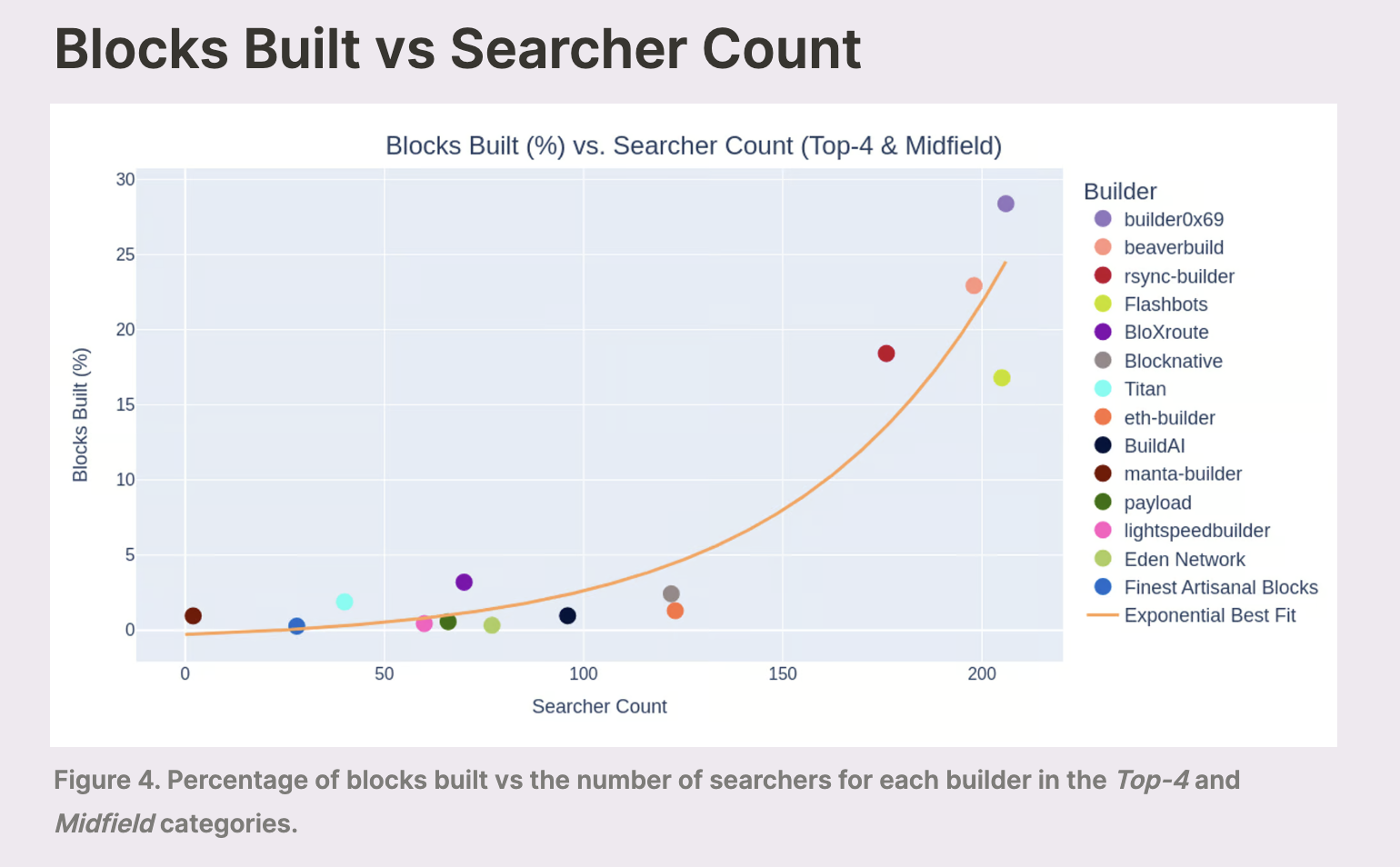
We will be writing a more comprehensive analysis on the various services out there soon, so stay tuned for that.
Cool, What's Next?

Crypticwood’s journey into the darkforest is just getting started, buckle up, it's time to illuminate the dark forest.